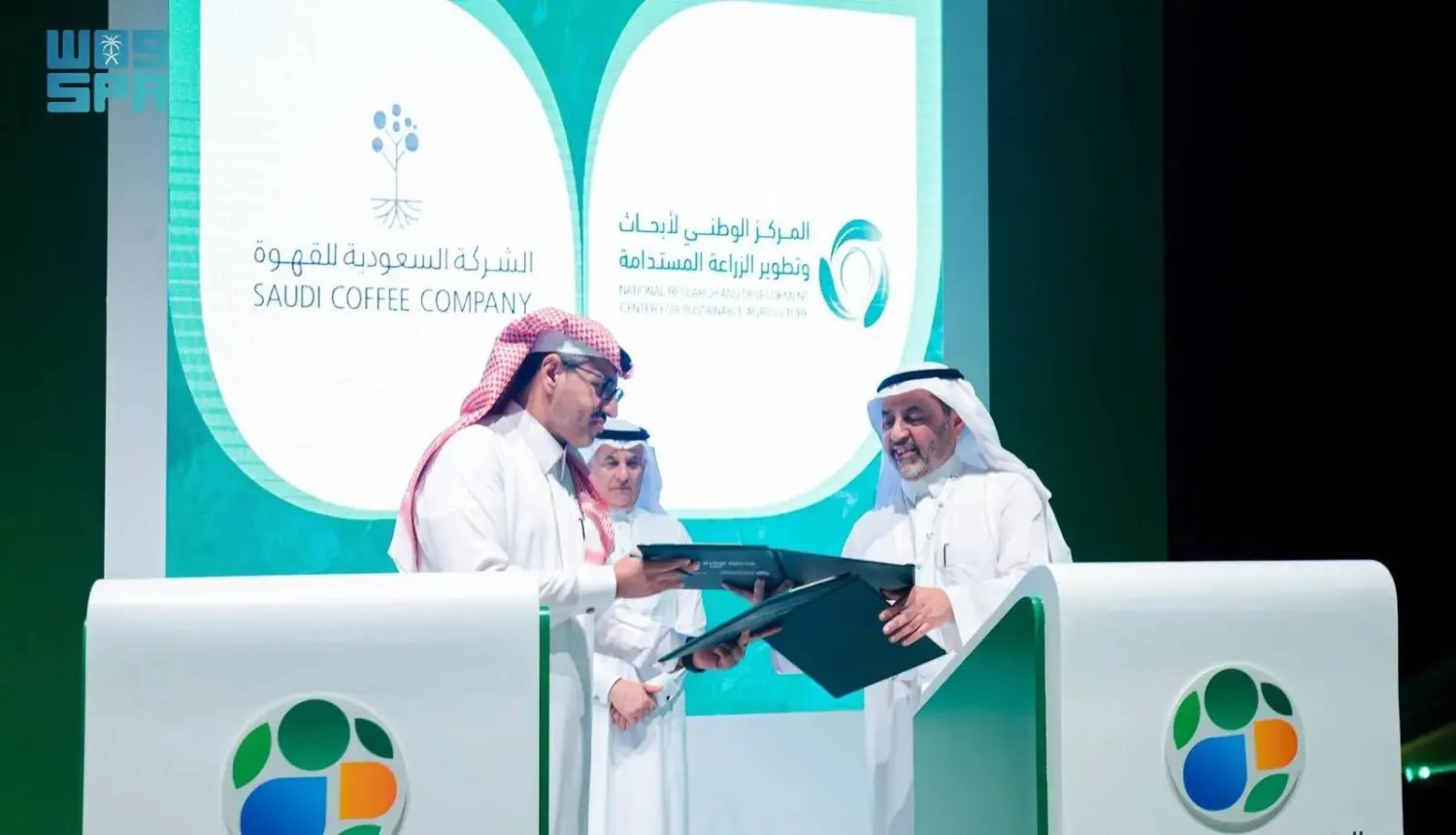The National Research and Development Center for Sustainable Agriculture (Estidamah) and the Saudi Coffee Company signed a strategic memorandum of cooperation aimed at boosting the coffee sector in the Kingdom, reported the Saudi Press Agency on Tuesday.
The partnership is part of national efforts to boost local coffee production, which will support the economy and help achieve the goals of the Kingdom's Vision 2030.
It focuses on various key areas, including localizing modern technologies for coffee cultivation and production, implementing findings from research and applied studies, and boosting the skills of local farmers through training in best agricultural practices in order to improve crop quality and maximize economic returns.
The joint research team will focus on technological innovation and prioritize the use of nanotechnologies and biocatalysts to improve coffee plant growth.
Furthermore, artificial intelligence will be utilized to manage coffee farms more efficiently, ultimately leading to greater productivity and improved quality.
The partnership will explore the possibility of using alternative water sources, including rainwater harvesting, to ensure the long-term sustainability of production and open up new possibilities for expanding coffee cultivation in different regions of the Kingdom.
Estidamah board member Dr. Abdulrahman Al-Saghir said this partnership marks a significant advancement for the Saudi coffee industry by leveraging Estidamah's research expertise with the Saudi Coffee Company's marketing capabilities.
The ultimate objective, he explained, is to position the Kingdom prominently on the global map of coffee production.
Sustainability Director at the Saudi Coffee Company Dr. Abdullah Bokhari said the collaboration marks an important stride toward empowering local farmers and boosting the global competitiveness of local coffee.
The collaboration is anticipated to generate new job opportunities and bolster rural development in coffee-producing areas, thus enhancing the quality of life for local communities.









